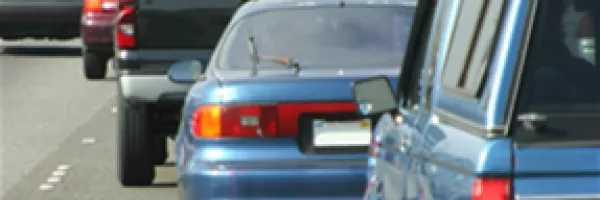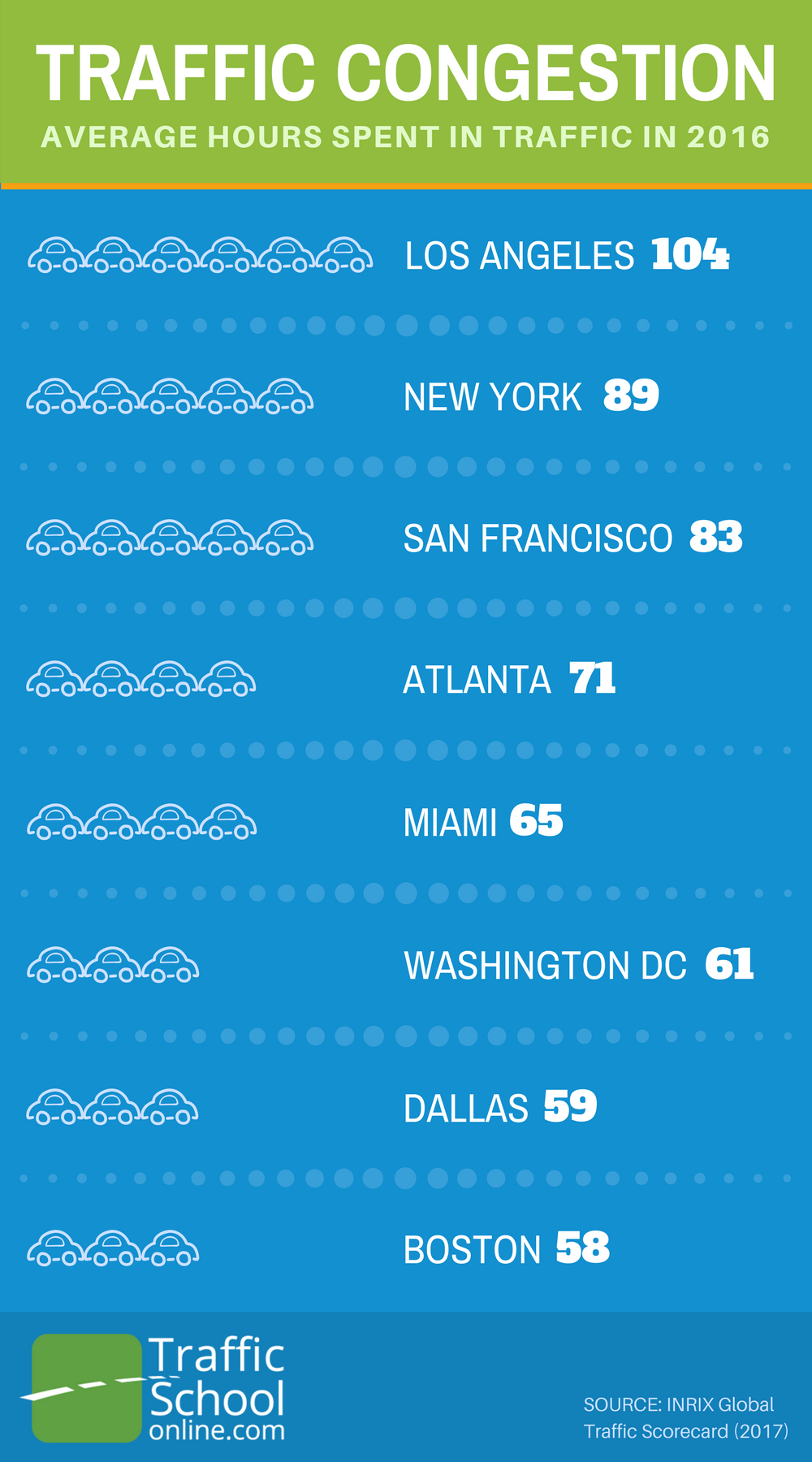
U.S. Cities With the Worst Traffic
How does your city rank for traffic congestion? You might be surprised at the number of hours you spend stuck in traffic each year. The INRIX Global Traffic Scorecard has analyzed and ranked traffic congestion in 1,064 cities across 38 countries, in the largest ever study of its kind. Their aim was to determine both the financial impact of traffic congestion and the number of hours the average driver spends in traffic each year.
In this global study, 3 of the top 4 worst cities in the world for traffic were in the U.S., with Los Angeles coming in at the number 1 spot. They estimate that the financial cost of traffic congestion to the average Los Angeles Driver in 2016 was $2,408, totaling $9.7 billion for the entire city. Not to mention that on average, Angelenos each spent 104 hours sitting in traffic in 2016. New York, San Francisco, and Atlanta weren’t far behind, with 89, 83, and 71 hours respectively — each of these cities incurring upwards of $2.5 billion in costs relating to traffic congestion.
The study’s cost calculations involve the value of fuel and time wasted, as well as indirect costs of freight and company vehicles idling in traffic, which translate into higher prices for household goods.
Though the residents of these cities may spend a staggering amount of time stuck in traffic over a lifetime of commuting, and endure the associated financial costs, high levels of traffic congestion are an indication of a thriving economy. As lawmakers and private companies alike work to ease the gridlock and traffic congestion burdening drivers, progress is being made in the form of studies like this one, which provide insight into specific problem areas and budget prioritization. Understanding when and where congestion is worst, and exactly how bad it is, can be considered the first crucial step in solving the dilemma.
Though the research, diagnosis, and correction of these issues is a long and daunting task for government and transportation officials; there are things that every driver can do now to help reduce the effects of traffic congestion on their time and wallets. Simple strategies include taking advantage of carpooling to share expenses, or planning routes in advance to reduce time spent in traffic. You can use strategies to reduce other driving-related costs and reclaim some of the costs lost to traffic. Shopping insurance quotes regularly, taking safe driver courses to reduce insurance costs, and using fuel perks or reward cards can all help to negate the cost of traffic congestion and free up hundreds of extra dollars annually for drivers.
